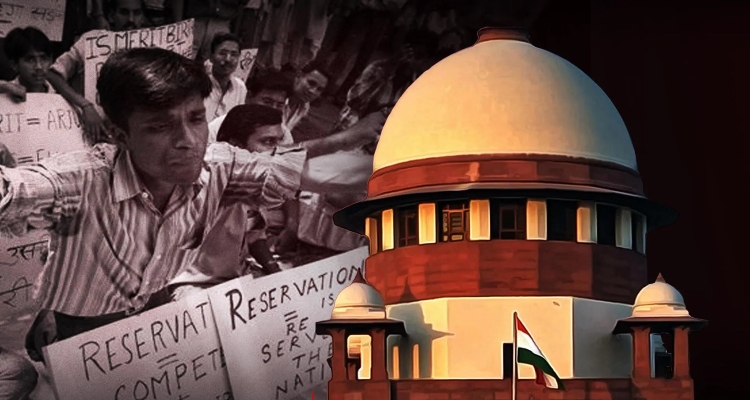
The Supreme Court on Thursday has ruled by a 6:1 majority that sub-classification within the scheduled caste and scheduled tribes (SC/ST) reservation is permissible.
This decision was made by a seven-judge bench led by Chief Justice of India DY Chandrachud, which overturned an earlier judgement by a five-judge bench in the EV Chinnaiah case. The previous judgement had held that sub-classification was not allowed because SC/STs were considered homogenous groups.
Joining Chief Justice Chandrachud on the bench were Justices BR Gavai, Vikram Nath, Bela M Trivedi, Pankaj Mithal, Manoj Misra, and Satish Chandra Sharma. Justice Bela M Trivedi was the sole dissenter, expressing disagreement with the majority decision.
The bench was addressing issues related to the sub-classification of reserved communities such as SCs and STs. In overturning the Chinnaiah judgement, CJI Chandrachud noted that even at the most disadvantaged levels, the challenges faced by these classes do not disappear with their representation.
Justice BR Gavai highlighted that certain sub-categories within SC/STs have faced prolonged oppression and suggested that the state should develop a policy to identify the ‘creamy layer’ within these categories.
In her dissenting opinion, Justice Trivedi argued that without executive and legislative authority, states lack the competence to sub-classify castes and the benefits reserved for the entire Scheduled Caste. She stated that “sub-classification by states would amount to tinkering with the Presidential notification under Article 341(2).”
The Central Government supported sub-classifications among Scheduled Tribes and Scheduled Castes. The Supreme Court was examining the constitutional validity of Section 4(5) of the Punjab Act, which questioned whether classifications could be made within the class of Scheduled Castes or Scheduled Tribes, or if they should be treated as homogenous groups.
The Punjab Government had mandated that fifty percent of the vacancies reserved for Scheduled Castes in direct recruitment should be offered to Balmikis and Mazhabi Sikhs, subject to availability, by giving them first preference among Scheduled Caste candidates. On March 29, 2010, the Punjab and Haryana High Court struck down these provisions, relying on the decision in E.V. Chinnaiah.
The Supreme Court appeal was filed against the High Court judgement, and in August 2020, a five-judge bench referred the matter to a larger bench.




